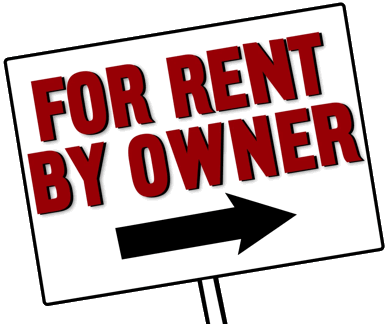As more Americans leave rural areas for suburbs and city life, renting has become a big business. The U.S. has more people renting their apartments and homes than any time since the 1960s but finding and choosing the right rental can be a mixed bag.
Renting affords you certain rights, but you will always have fewer rights when renting your residence instead of owning. If you’re looking for the perfect rental for you and your family, can you take care of certain items like you would before buying a property, like a home inspection?
Let’s talk about inspections for potential rentals, including how to verify reports from your landlord or property manager so you know exactly what you’re moving into.
What are You Inspecting a Rental For?
There’s a big difference between inspecting rentals and owned properties. During a normal third-party inspection, nearly every facet of the house or condo is evaluated - including roofing, appliances, flooring, driveways, and much more.
While you’d likely enjoy the peace of mind having a home inspector check your rental, it’s unlikely you’ll be able to fully inspect a property you don’t own. Unless you’re fully committed to paying the inspector out of pocket and your landlord will allow the inspector to access the entire property, you’ll probably have to settle for a “simper” inspection. Because many rental units house appliances like furnaces in different units and parts of the building, and much of your plumbing comes from a central location, it’s unlikely you’ll be able to receive a thorough third-party inspection.
Many landlords have their rentals inspected by third-party home inspectors periodically, especially between tenants. A landlord has potential to lose money if your furnace goes on the fritz or your sink backs up, so they check their residences too. Ask your prospective landlord about any recent inspections on the property and if you can read them.

What to look for during an inspection.
Your concern should be centered less on structural deficiencies and more on health and wallet hazards that are common in rental communities, namely lead, asbestos, and previous damage.
Most landlords will allow a third-party to inspect for lead, asbestos, and other hazardous items if the potential tenant pays for it and has the landlord’s permission. If a potential landlord won’t allow a third-party inspector, you might not want to rent there.
It’s easier to hire a third-party inspector if you’ve already signed a lease agreement but you will still need permission from your landlord. If you’ve already signed the lease, you’re unlikely to get out of your agreement even if the inspector finds issues but at the least you can report those issues to your landlord. In some cases, the landlord might be required by law to repair or mitigate the issues.
State by State Rules
Many of the rules regarding lead, asbestos, and other hazardous items vary by state and city. A city might require a landlord to disclose any lead or asbestos testing results and property managers must take mitigation steps if large amounts of asbestos or other hazardous materials are found during renovations.
Since the rules of disclosing hazardous materials are so varied, all potential tenants must talk to their landlord or property manger about their state’s laws before signing any agreements. Double check that whatever materials to certify testing your landlord hands over line up with local city and state guidelines. If your landlord won’t comply with hazardous material requests or other state-sanctioned disclosures, you don’t want to live there.

Inspecting Damage
Before, or right after, moving in it’s important to document any damage or deficiencies in your rental. Carefully move from room to room and inspect every portion of your rental including appliances, flooring, walls, exterior portions, and more. Take a picture of any cracks, stains, or corroded pipe to protect yourself. Submit any found damage or deficiencies immediately to your landlord to be sure you aren’t charged for damage or issues you didn’t create.
Inspections Before Buying Rental Property
If you’re purchasing a property for rental purposes, hiring a third-party inspector is a must. Even though you won’t be living in the residence any thing that happens to the rental unit will come out of your pocket unless you protect yourself.
Before purchasing a rental, hire a qualified third-party inspector to crawl every inch of the rental for damage, deficiencies, and other issues. Before turning over an inspected unit to a new renter make a sweep through the property for any minor issues to fix before move-in. Document all these fixes. It is much easier to make the repairs before a tenant moves in.

Getting Inspected Before Renting
Can you get a rental inspected before you move in? The short answer is maybe. You can often hire a third-party inspector with permission from your landlord and if you pay for it, but most landlords already have their properties regularly inspected and certified by professionals. Instead of hiring your own third-party inspector, ask your landlord for any lead and hazardous material information and the report from the last inspection.
It’s unlikely you’ll be able to order a full home inspection for any rental units but take the right steps to guard the health of you and your family by verifying all inspections before signing. Check out our blog post Questions to Ask When Renting for more helpful tips.




